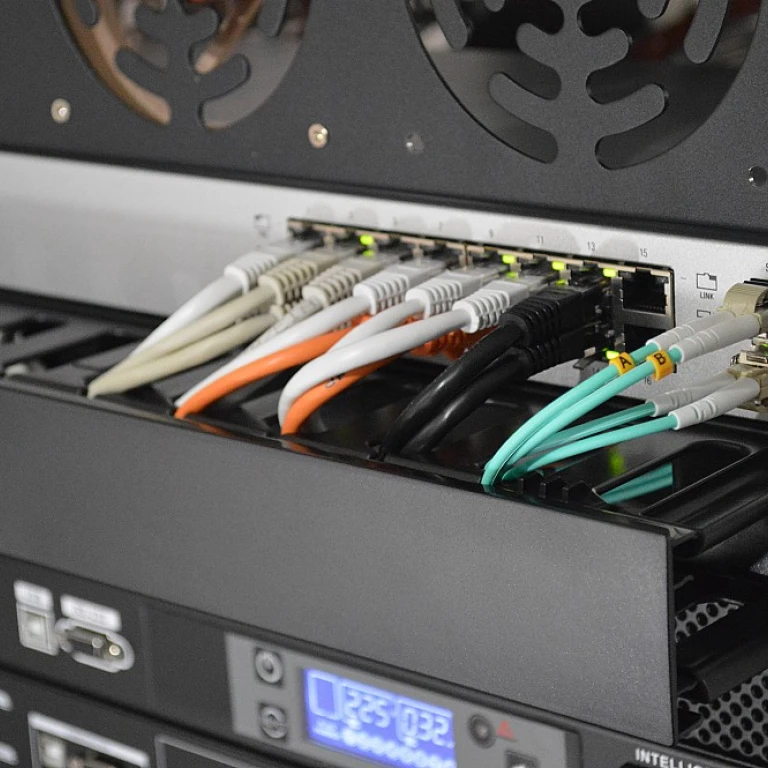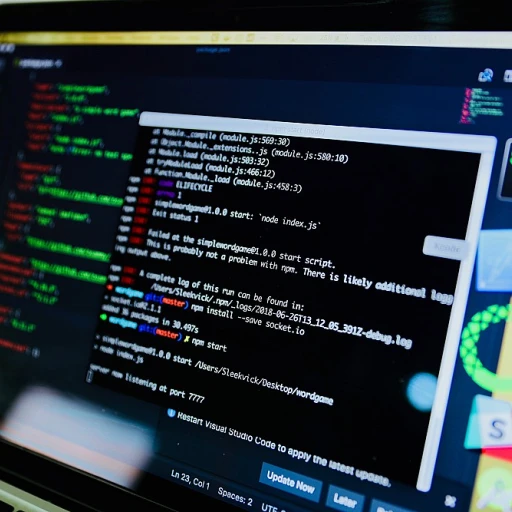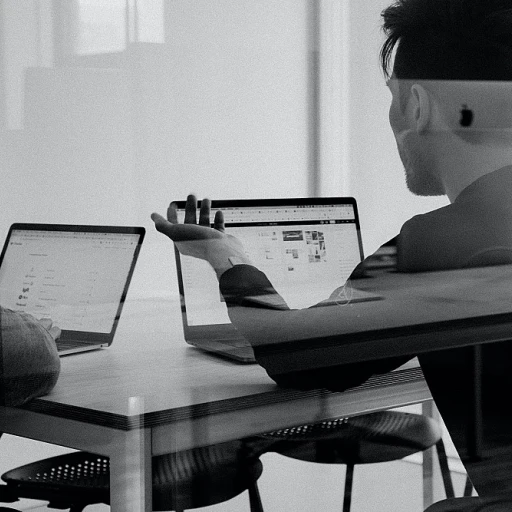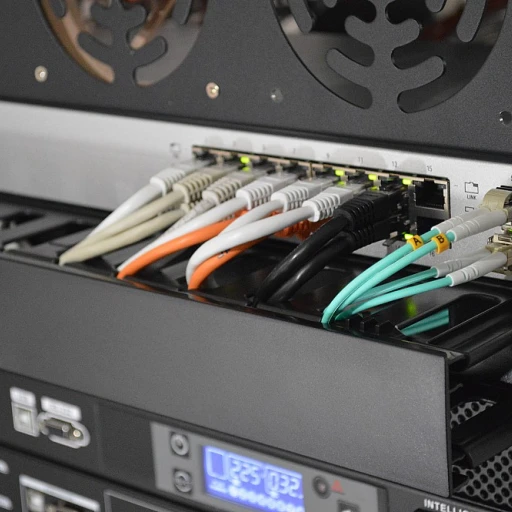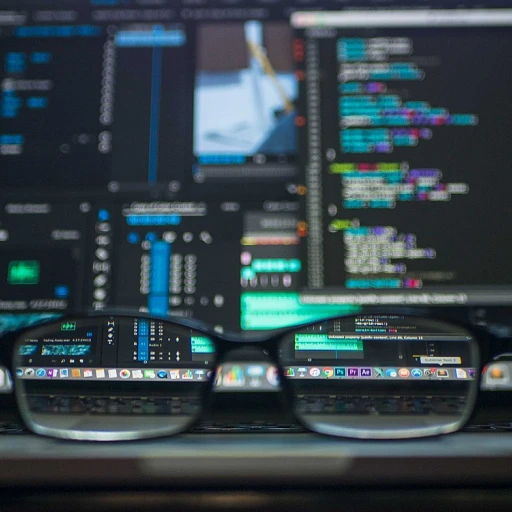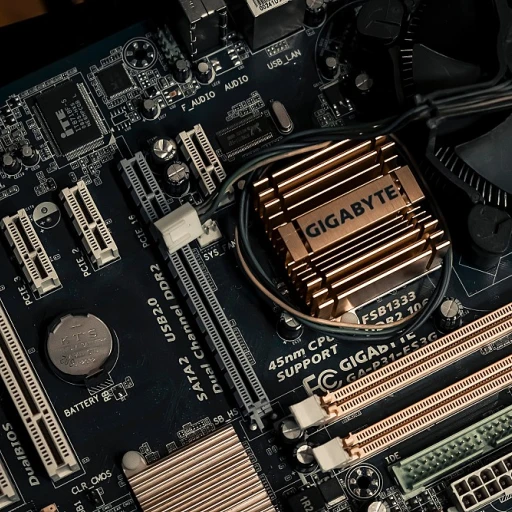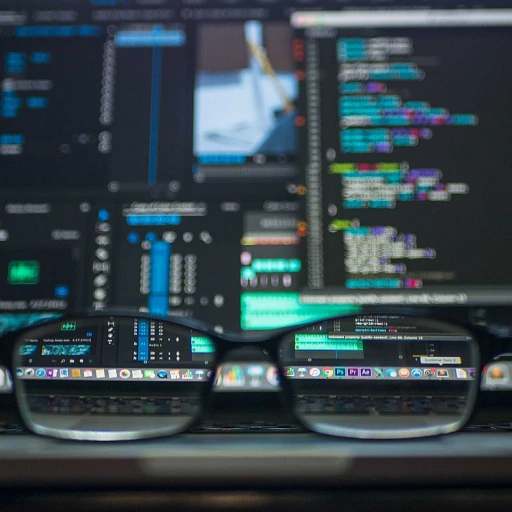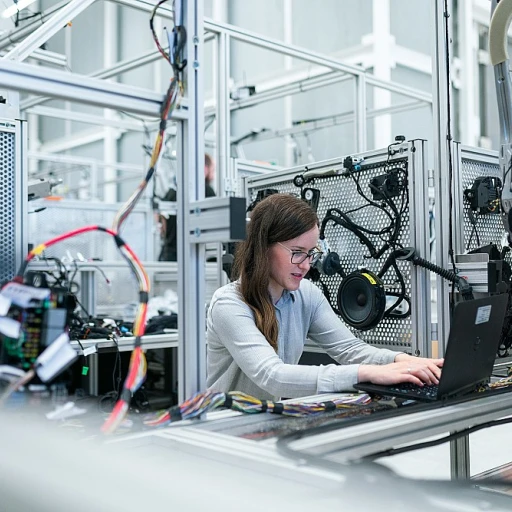
The Expanding Role of IoT Developers
The Evolving Landscape of IoT Development
The role of an IoT developer is rapidly expanding as the Internet of Things (IoT) continues to integrate more deeply into our daily lives and industries. IoT developers are at the forefront of creating smart solutions that connect devices, systems, and applications, enabling seamless communication and data exchange. This evolution is driven by the increasing demand for real-time data processing and the need for efficient IoT systems that can handle vast amounts of data.
As IoT devices become more prevalent, developers are tasked with designing and implementing systems that ensure security, reliability, and scalability. The integration of IoT applications into various sectors, such as healthcare, manufacturing, and smart cities, highlights the critical role developers play in shaping the future of technology. Their work involves not only the development of software but also the integration of hardware and sensors to create comprehensive IoT solutions.
Moreover, the rise of cloud computing and IoT platforms has transformed how developers approach IoT development. These technologies provide the infrastructure necessary for managing and analyzing data generated by IoT devices, allowing developers to focus on creating innovative applications that enhance user experiences. The shift towards cloud-based solutions also emphasizes the importance of skills in cloud computing and programming languages tailored for IoT development.
For those interested in exploring the future of software in wearable technology, which is closely related to IoT development, you can learn more about the evolution of software in wearable technology.
Core Responsibilities of an IoT Developer
Key Responsibilities in IoT Development
In the rapidly evolving landscape of the Internet of Things (IoT), developers play a crucial role in bridging the gap between physical devices and digital systems. Their responsibilities are multifaceted, encompassing a range of tasks that ensure seamless integration and functionality of IoT solutions.
Design and Development of IoT Systems
IoT developers are primarily responsible for the design and development of IoT systems. This involves creating applications that can effectively communicate with various IoT devices and sensors. Developers must ensure that these applications are capable of processing large amounts of data in real time, providing actionable insights and enhancing user experience.
Integration of Hardware and Software
Another critical responsibility is the integration of hardware and software components. IoT developers must work closely with hardware engineers to ensure that devices are compatible with the software solutions being developed. This requires a deep understanding of both the hardware capabilities and the software requirements, ensuring that the two work harmoniously together.
Ensuring Security and Data Privacy
Security is a paramount concern in IoT development. Developers are tasked with implementing robust security measures to protect data and devices from potential threats. This includes encrypting data, securing communication channels, and ensuring that IoT applications adhere to privacy regulations. As IoT systems often handle sensitive information, maintaining data integrity and privacy is a top priority.
Cloud Integration and Management
IoT developers are also responsible for integrating IoT applications with cloud platforms. This involves leveraging cloud computing to store and process data, enabling scalable and efficient IoT solutions. Developers must ensure that the integration is seamless, allowing for real-time data access and analysis.
Continuous Monitoring and Maintenance
Once an IoT system is deployed, developers must continuously monitor its performance and make necessary updates. This includes troubleshooting issues, optimizing system performance, and ensuring that the IoT applications remain up-to-date with the latest technological advancements. Continuous maintenance is essential to ensure the longevity and reliability of IoT systems.
For more insights on how IoT is reshaping the future of work, you can explore this article.
Skills Required for IoT Development
Essential Skills for Thriving in IoT Development
As the Internet of Things (IoT) continues to transform how we interact with technology, the skills required for IoT development are evolving. IoT developers must possess a diverse skill set to effectively design, implement, and maintain IoT systems. Here are some key skills that are crucial for any aspiring IoT developer:
- Programming Languages: Proficiency in programming languages such as Python, Java, and C++ is essential. These languages are commonly used in developing IoT applications and solutions, enabling developers to create efficient and scalable software.
- Understanding of IoT Platforms: Familiarity with IoT platforms like AWS IoT, Google Cloud IoT, and Microsoft Azure IoT is crucial. These platforms provide the infrastructure needed to connect and manage IoT devices and data.
- Data Management: IoT systems generate vast amounts of data. Developers need to be skilled in data management and analysis to extract valuable insights from this data, ensuring that IoT applications can operate effectively in real time.
- Hardware and Sensors: A solid understanding of hardware components and sensors is necessary. IoT developers must know how to integrate these elements into IoT devices to collect and transmit data accurately.
- Security: With the increasing number of connected devices, security is a top priority. Developers must implement robust security measures to protect IoT systems from potential threats and vulnerabilities.
- Cloud Computing: Knowledge of cloud computing is vital for IoT development. Cloud services are often used to store and process data from IoT devices, allowing for seamless integration and scalability.
- Machine Learning: As IoT applications become more sophisticated, incorporating machine learning can enhance their capabilities. Developers should understand how to apply machine learning techniques to improve the functionality and efficiency of IoT solutions.
These skills not only equip IoT developers to tackle current challenges but also prepare them for future trends in software development. As IoT continues to expand its reach, the demand for skilled developers in this field will only grow, offering numerous career opportunities and pathways for growth.
For more insights into the evolving landscape of software development, explore our comprehensive guide on natural language processing software.
Challenges Faced by IoT Developers
Overcoming the Hurdles in IoT Development
As the Internet of Things (IoT) continues to evolve, developers face a unique set of challenges that require innovative solutions. The integration of diverse devices and systems is a complex task, demanding a deep understanding of both hardware and software. IoT developers must ensure seamless communication between devices, which often involves working with various programming languages and platforms.
One of the primary challenges is managing the vast amounts of data generated by IoT devices. Developers are responsible for creating systems that can efficiently process and analyze this data in real time, often utilizing cloud computing and machine learning techniques. Ensuring data security and privacy is another critical concern, as IoT applications are frequently targeted by cyber threats.
IoT developers also need to address the limitations of existing infrastructure. Many IoT solutions require robust connectivity and low-latency communication, which can be difficult to achieve in areas with poor network coverage. Additionally, the integration of IoT systems with legacy applications poses significant challenges, requiring developers to possess strong problem-solving skills and adaptability.
Finally, the rapid pace of technological advancement means that IoT developers must continuously update their skills to stay relevant. This includes keeping up with the latest trends in IoT platforms, cloud solutions, and smart device technologies. By overcoming these challenges, IoT developers play a crucial role in shaping the future of software and driving innovation in the industry.
Impact of IoT on Future Software Trends
Influence of IoT on Emerging Software Paradigms
The Internet of Things (IoT) is reshaping the landscape of software development, driving new trends and innovations. As IoT devices proliferate, the demand for sophisticated software solutions that can handle vast amounts of data and ensure seamless integration across various platforms is increasing. This shift is influencing how developers approach software design and implementation.
Real-Time Data Processing and Analytics
One of the most significant impacts of IoT on software trends is the emphasis on real-time data processing. IoT systems generate massive streams of data that need to be processed and analyzed promptly. This requires robust software capable of handling real-time analytics, enabling businesses to make informed decisions quickly. IoT developers are increasingly focusing on creating applications that can process data in real time, enhancing the responsiveness and efficiency of IoT solutions.
Security and Privacy Concerns
With the rise of IoT devices, security has become a paramount concern. IoT developers must prioritize building secure systems to protect sensitive data from breaches and unauthorized access. This has led to the development of advanced security protocols and encryption methods tailored specifically for IoT applications. As a result, security considerations are now integral to the software development process, influencing how developers design and implement IoT solutions.
Integration with Cloud Computing
Cloud computing plays a crucial role in the evolution of IoT software. By leveraging cloud platforms, IoT developers can create scalable and flexible applications that can handle the dynamic nature of IoT systems. Cloud integration allows for efficient data storage, processing, and management, enabling developers to build more robust and versatile IoT applications. This trend is driving the need for developers to acquire skills in cloud computing and understand how to integrate cloud services with IoT devices effectively.
Advancements in Machine Learning and AI
Machine learning and artificial intelligence are becoming increasingly important in the development of IoT applications. These technologies enable IoT systems to learn from data, adapt to changing conditions, and make autonomous decisions. IoT developers are incorporating machine learning algorithms into their applications to enhance functionality and provide smarter solutions. This trend is pushing the boundaries of what IoT applications can achieve, leading to more intelligent and adaptive systems.
Career Opportunities and Growth in IoT Development
Career Pathways and Growth in IoT Development
The Internet of Things (IoT) is not just a buzzword; it's a rapidly expanding field that offers a plethora of career opportunities for developers. As IoT devices continue to proliferate, the demand for skilled IoT developers is on the rise. These professionals are crucial in creating and maintaining the complex systems that connect devices, manage data, and ensure security.
IoT developers can find themselves working in various sectors, from smart home applications to industrial IoT solutions. The skills required for IoT development, such as proficiency in programming languages and understanding of hardware integration, open doors to diverse roles. IoT engineers, for instance, are responsible for designing and implementing IoT systems that can handle large amounts of data in real time.
Expanding Roles and Responsibilities
As the role of an IoT developer expands, so do the opportunities for career advancement. Developers can transition into specialized roles such as IoT architects, who design the overarching structure of IoT systems, or IoT security experts, who focus on safeguarding IoT applications from cyber threats. The integration of machine learning and cloud computing into IoT platforms further broadens the scope for innovation and specialization.
Impact on Future Software Trends
The impact of IoT on future software trends is significant. IoT development is driving the need for more robust and scalable software solutions that can support the growing network of connected devices. As IoT systems become more sophisticated, the demand for developers who can create seamless integration between devices and cloud-based applications will continue to grow.
In conclusion, the career opportunities in IoT development are vast and varied. With the right skills and a keen understanding of the evolving landscape, IoT developers can look forward to a dynamic and rewarding career path.

